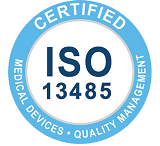- HEK293 expressed
- Endotoxin-free
- Animal-component free
HumanKine® recombinant human Betacellulin protein- GMP grade
EC50
Species Reactivity
human,mouse
Purity
>95%

Cat no : HZ-1339-GMP
Synonyms
BTC
Validation Data Gallery
Technical Specifications
| GeneID | 685 |
| Species | Human |
| Expression | HEK293 |
| EC50 | |
| Purity | >95% |
| Endotoxin | <0.1 EU/µg |
| Accession Number | P35070 |
| Molecular Mass | 12 to 25 kDa reduced, 11 to 23 kDa non-reduced, monomer, glycosylated |
| Formulation | 1 x PBS, See Certificate of Analysis for details |
| Species Reactivity | human,mouse |
Stability and Reconstitution
| Stability and Storage | Product Form | Temperature Conditions | Storage Time (From Date of Receipt) |
|---|---|---|---|
| Lyophilized | -20°C to -80°C | Until Expiry Date | |
| Lyophilized | Room Temperature | 2 weeks | |
| Reconstituted as per CofA | -20°C to -80°C | 6 months | |
| Reconstituted as per CofA | 4°C | 1 week | |
| Avoid repeated freeze-thaw cycles. | |||
| Reconstitution | Briefly centrifuge the vial before opening. It is recommended to reconstitute the protein to 0.2 mg/mL in sterile 1x PBS pH 7.4. Gently swirl or tap vial to mix. |
GMP Quality Policies
HumanKine® GMP (Good Manufacturing Practice) recombinant proteins are manufactured and validated in accordance with ISO 13485 quality management system and is compliant with GMP.
Our GMP recombinant proteins are animal component free (ACF), xeno free (XF) and tag free (TF). Read more about these policies here.
Background
Betacellulin (BTC) is a member of the epidermal growth factor (EGF) family of proteins, which play a critical role in cell growth, differentiation, and repair. It is initially synthesized as a membrane-bound precursor, later cleaved to release its active soluble form (PMID 27635238). BTC is known to bind to and activate the ErbB receptor family, particularly ErbB1 (also known as EGFR) and ErbB4, triggering a cascade of intracellular signaling pathways that regulate cell proliferation and survival (PMID 24440602). BTC is highly expressed in various tissues, including the pancreas, where it promotes the growth and regeneration of insulin-producing beta cells, suggesting a potential role in diabetes treatment (PMID 33553143). Due to its wide-ranging effects, betacellulin has been studied for therapeutic applications in regenerative medicine and cancer (PMID 31678994, 12704384).
Synonyms
BTC